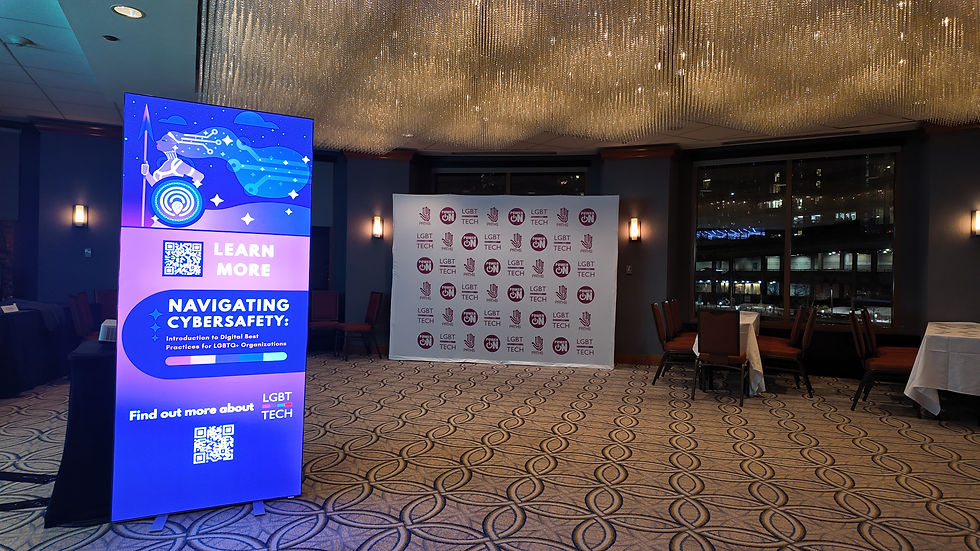Webinar Recap: How Online Platform Regulations & Anti-LGBTQ+ Efforts Align in the States
- Shae Gardner
- Apr 23, 2024
- 2 min read
As online platforms evolve and state lawmakers grapple with governance frameworks, questions surrounding inclusivity, privacy, and freedom of expression take center stage. Understanding the nuances of digital governance and where it impacts and intersects with marginalized communities, particularly the LGBTQ+ community, becomes paramount.
Last week, we hosted a webinar to present a new LGBT Tech report on the 2023 social media regulation landscape, followed by an expert panel sharing their approach to the critical intersection of platform governance and LGBTQ+ digital equity.
–
For LGBT Tech, our research highlights the historical and contemporary challenges faced by LGBTQ+ individuals due to harmful legislation. In the digital age, this discrimination extends to online platform regulations, where protection rhetoric can worsen or even mask discriminatory agendas. LGBT Tech Director of Policy Shae Gardner outlines those findings here.
–
For panelist Casey Pick, Director of Law and Policy at the Trevor Project, her work around these bills is best described as “sitting at an interesting intersection.” As the leading suicide prevention and crisis intervention nonprofit organization for LGBTQ+ young people, the Trevor Project operates both as a mental health organization and an advocate for LGBTQ+ young people. “We are very cognizant of the goals and ambitions of these bills, many of which, at most generously interpreted, want to help protect the mental health of young folks. We understand social media uniquely, as the Trevor Project has a social media platform explicitly for LGBTQ+ young folks. That gives us insight into just how important these platforms can be.”
–
Maxx Fenning is the Executive Director of PRISM, an organization working to expand access to LGBTQ-inclusive education and sexual health resources for youth in South Florida. Maxx works with and advocates for LGBTQ+ youth in a state facing some of the most stringent anti-LGBTQ+ legislation and online platform regulation, offering a unique lens on digital governance and youth access. According to Maxx, “we’re a youth-led organization, and so we firmly believe in the power of youth voices and youth leadership and making sure that they have the agency to advocate for themselves in an online space.”
–
In her work as Deputy Director of the Center of Democracy and Technology’s Free Expression Project, panelist Becca Branum fights to ensure that technologies are kept free of government censorship and content gatekeepers. “CDT really works to fight to advance civil rights and liberties online, recognizing that the internet is a uniquely invaluable tool for both publishing and receiving information. And that can be even more important for communities who might be able to find spaces online that are more affirming or accessible than those they find offline.”
–
On this panel and in this larger conversation, we see digital equity efforts, mental health support, youth advocacy, and free speech protections converge in their opposition to regulations that could restrict access to vital online resources and safe spaces crucial for LGBTQ+ youth. This alignment reflects a collective understanding of the importance of maintaining open and supportive digital environments for the users who rely on them the most.


